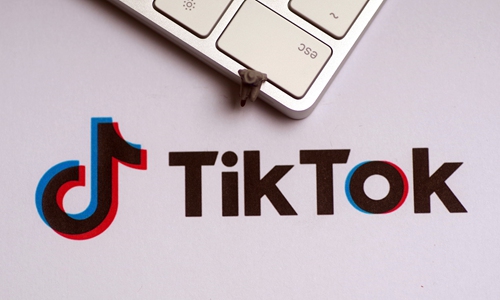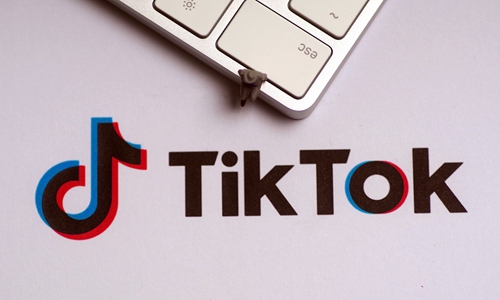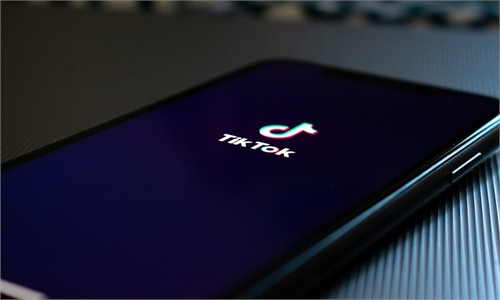
TikTok Photo: VCG
Chinese analysts lambasted the Trump administration's decision involving more detailed measures for a forced sell-off of popular short-form video platform TikTok, owned by Beijing-based ByteDance, over the weekend.
US President Donald Trump issued an executive order on Friday giving ByteDance 90 days to either sell or spin off its TikTok business in the US. The deadline was longer than what had been offered previously but the latest executive order requires ByteDance to destroy any TikTok data from US users, according to tech website theverge.com.
The destruction of data assets could mean the loss of valuable intangible assets for the company in today's digital economy.
Chinese analysts noted that the Trump administration is using the US political apparatus to block any chance of TikTok transferring its data outside of the US and monetizing them.
Song Guoyou, director of Fudan University's Center for Economic Diplomacy, told the Global Times on Sunday that the new decree shows that the Trump administration is using its maximum pressure tactics against TikTok while making sure any loopholes from its previous executive order are fixed.
However, Song said the crackdown and forced sale of TikTok's US operations "further underscores the fact that the US market is not a free, fair and transparent market, but one in which the state can intervene under the premise of national security and harm the interests of other companies and other countries."
Trump announced sweeping bans on August 6 on US transactions with China's ByteDance and WeChat, owned by Tencent, starting in 45 days.
ByteDance is already in talks to sell the North American, Australian and New Zealand operations of TikTok to Microsoft Corp.
Using the premise of national security to crack down on Chinese companies is not only against the spirit of the market economy, but also goes against the basic rules of international trade, said Hong Tao, director of the Institute of Business Economics at Beijing Technology and Business University.
"The US sanctions on the Chinese firms should be resolutely opposed and legal means should be employed by the involved companies to protect themselves," Hong said, adding that both TikTok and WeChat are very popular apps in the world. They also represent the trend of social consumption on a market basis.
Hong said that in response to the US' groundless crackdown on these Chinese companies, China may take reciprocal measures against American tech firms.
Song held a similar view, adding that what the US is doing to companies from other countries may affect the fortunes of US companies operating abroad.
The Chinese Foreign Ministry criticized the US practice of abusing the national security concept and using state power to wantonly suppress non-American businesses like TikTok, pointing out that the moves violate market principles and WTO rules.
It said that such blatant bullying and political manipulation had been seen through and condemned by the international community, including people in the US.



